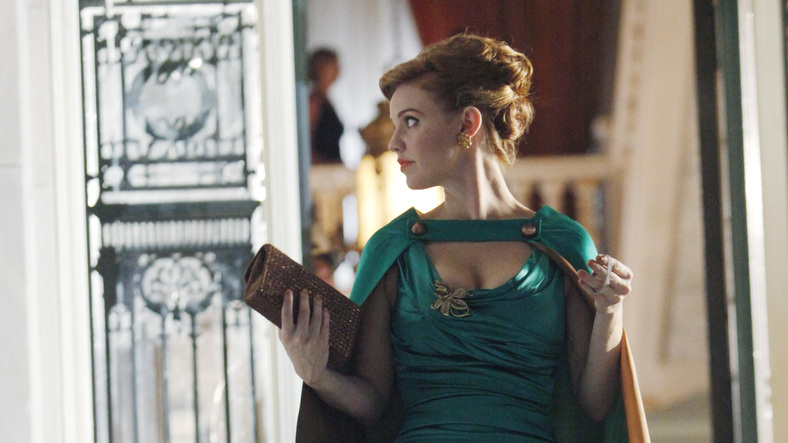Who saw the introduction of the Oscars last weekend? Not Cablevision’s 3.1 million subscribers, and they’re lucky they even got to see any of the awards ceremony. After failed negotiations between the communications company and ABC caused a Channel 7 blackout at midnight Sunday, the two came to an agreement “on principle” about a half hour into the show and resumed broadcasting. Is ABC trying to pad its pockets by charging for something that is broadcasted for free? Is Cablevision playing hardball at the expense of subscribers? Here to discuss are Press News Editor Timothy Bolger, Press staff writer and green columnist Jaclyn Gallucci and Executive Director of Fair Media Council Jaci Clement.
I wonder if viewers realize the extent of the difference between this feud and the Food Network/HGTV blackout, or if only media observers are paying that close attention. Considering the nearly unprecedented nature of the ABC/Cablevision dispute, it is tough to defend either side. Channel 7 needs to make up for lost revenue thanks to the proliferation of cable. Cable doesn’t want to open the floodgates to the other broadcast networks who also want more money. Oscars debacle aside, at least this signal interruption only lasted nine hours and not three weeks. Although it surely soured public opinion of both companies in the process.
I can’t say who carries the fault on this one, but I’m sure the average Cablevision subscriber must be throwing blame at ABC. Cablevision commandeered their cable boxes, redirecting them to a “customer alert,” aka Cablevision’s side of the story, every single time they went to watch TV. I’m a Cablevision customer. I understand putting a scrolling message on Channel 7, at the bottom of the screen. But shoving propaganda in the consumer’s face like that doesn’t sit well with me. This whole ordeal was like watching two divorced parents badmouthing each other and making their kids choose sides instead of closing the door and handling their business without all the playground antics.
Great analogy, Jaclyn. Both parties share blame, and both have underestimated the damage they have created with their respective audiences. A few things to keep in mind: ABC is regulated by the FCC, but cable is not. This argument centered on retransmission fees, which is a murky area with the FCC. And yes, this type of argument is something we will surely see more of as contracts between other media outlets come up for renewal. But something happened here on Long Island that set a dangerous precedent for the future: We saw “big brother” Cablevision change from a passive monopoly into actively telling us what to think. That “customer alert” technique should be a wake-up call to everyone who lives and does business here: What you know and what you don’t know is in the hands of one company that answers to no one but the public it serves.
I’m holding out hope that more viewers than not recognize what you two are saying and don’t blindly assume that ABC is the only one at fault because the TV says so. But judging from some conversations I had on Sunday, there were some Cablevision subscribers out there who bought into their message without questioning it. Scary. One tactic backfired, too: When Cablevision offered free Oscar-nominated movies on demand as a consolation prize for losing ABC-7, they apparently couldn’t handle the amount of traffic, requests weren’t processed and customer service phone lines had up to 90-minute wait times. That just made subscribers angrier.
I was one of those people who tried to watch a movie and couldn’t. I don’t even want the movie. How about they make my box work without a 30-second delay, or make some kind of menu display that doesn’t make my eyeballs bleed. God, I miss my TiV—wait, what were we talking about again? …I completely agree, the one positive from all of this is I hope that more people think about where they get their information and who is holding the reins.
I couldn’t get a free download either, due to too much traffic for On Demand. But that e-mail really wasn’t about customer service: The timing sent a clear message to ABC that Cablevision didn’t care if Channel 7 was back on in time for the Oscars. You can accuse ABCs execs of living in Disneyland, and at times that’s accurate, but they don’t get what a monopoly is like. Monopolies are known for many things, but customer service isn’t one of them. The strategy employed didn’t match the game at hand. And, ABC aired a radio spot on Long Island, naming programs the public would no longer be allowed to see if ABC-7 went black. Problem was, the shows mentioned in the commercial are all available to us via TV-55. Net result: The spot made ABC look out of touch with this marketplace, which didn’t win them any fans. For those who believe the message in the Cablevision customer alert, remember that Cablevision raised its rates last year—during the worst economy since the Great Depression—and posted a $284 million profit for 2009.










